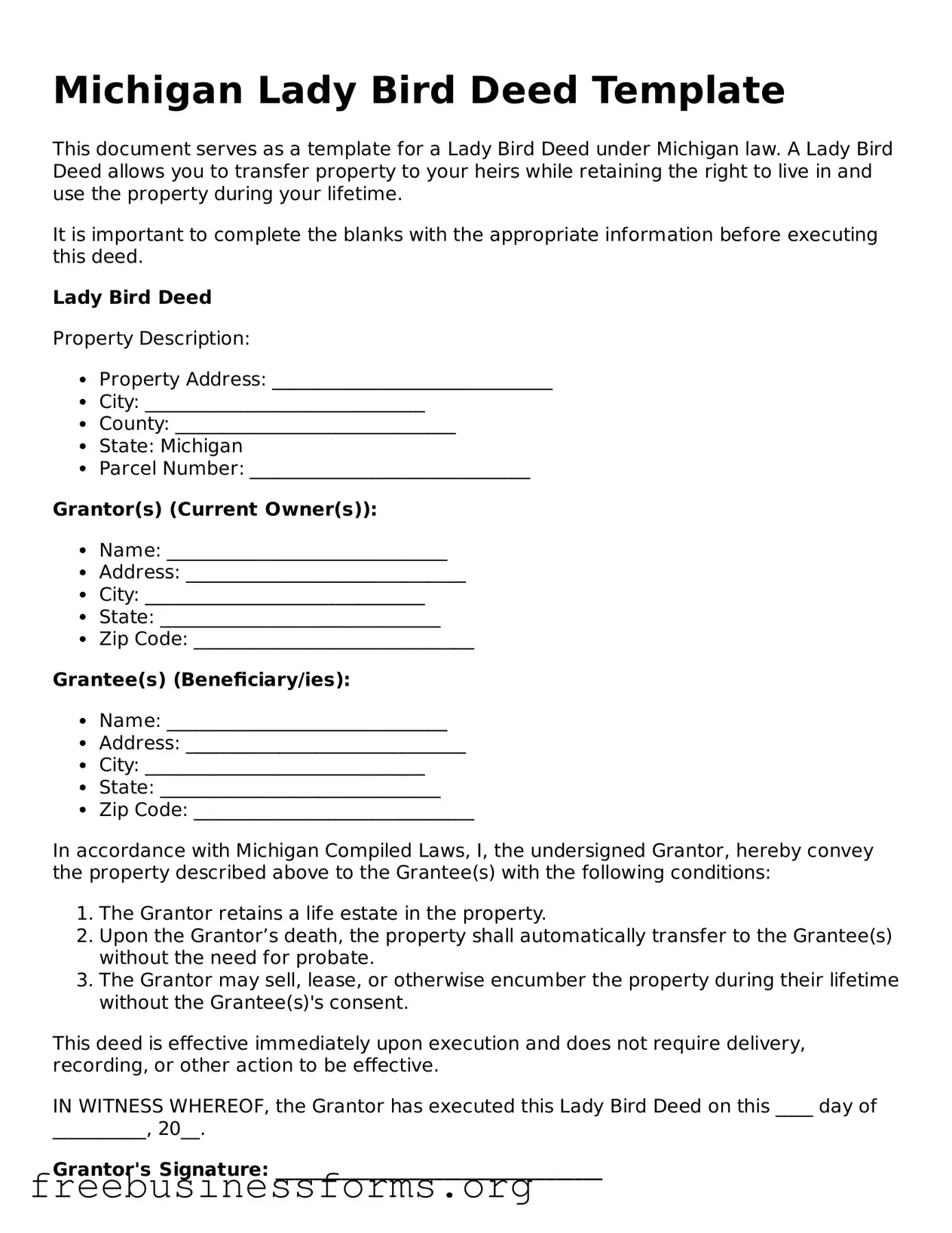Blank Lady Bird Deed Template for Michigan
The Michigan Lady Bird Deed is a legal document that allows property owners to transfer their real estate to beneficiaries while retaining the right to live in and control the property during their lifetime. This form provides a straightforward way to avoid probate and ensure a smooth transition of property ownership upon death. Understanding its benefits and implications can help individuals make informed decisions about their estate planning.
Open Form Here

Blank Lady Bird Deed Template for Michigan
Open Form Here

Open Form Here
or
↓ PDF File
Quickly complete this form online
Complete your Lady Bird Deed online quickly — edit, save, download.